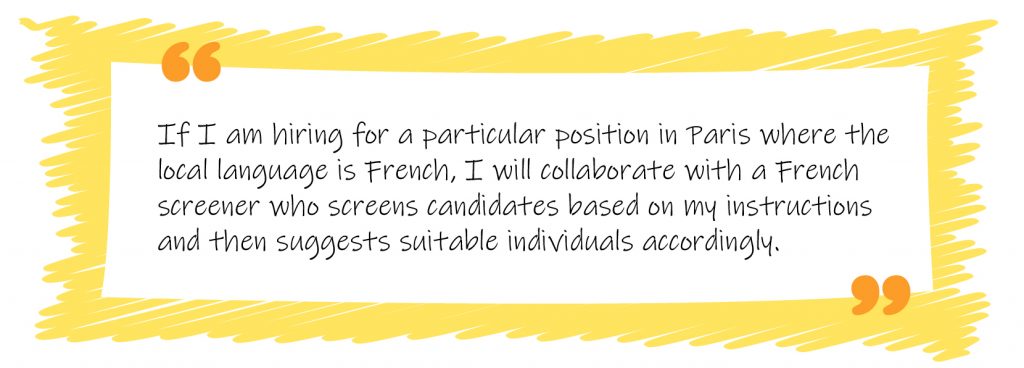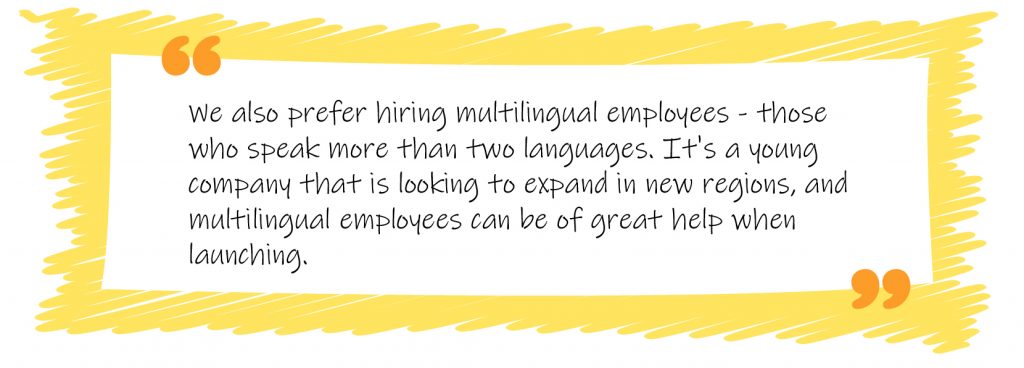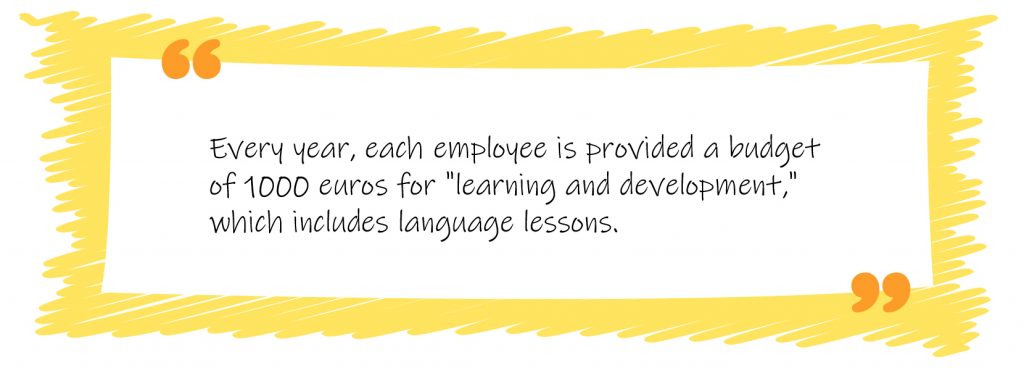In our quest to find out what makes today’s startups and global businesses hire multilingual employees, we had the opportunity of talking to Vishakha Pugalia. Vishakha works as a recruitment associate for an American micro-mobility provider offering rental services with e-scooters and e-bikes across cities in Europe and America.
During the course of this interview, Vishakha discussed how multilingual employees bring something new to the table, how she utilises local resources for recruitment activities in various countries, and the challenges of maintaining clear communication lines between such employees.
1: Hi Vishakha. Thanks for talking to us. Can you tell us a bit about your role in your organisation?

Vishakha
Hello. It’s my pleasure.
I started working here a year ago. A recruitment coordinator’s job is to coordinate all hiring activities across various regions. I have been managing the hiring processes across Europe – which includes ensuring all candidate information is updated and in place, setting up interviews, team briefs for discussing the candidates, etc. I have been hiring for specific roles in the Operations team like General Managers.
I was also involved in numerous contingency hirings as we hire people (say, mechanics) to work in our warehouses in many regions. Everywhere, I used to work with local screeners who would speak the local language of that European region and help me with hiring.
2: Can you specify some locations in Europe where your organisation is currently recruiting?
Vishakha
France, Germany, Ireland, Poland, Romania, Hungary, Sweden, Denmark, Turkey, and Greece.
3: Any particular reason(s) why you prefer hiring candidates who speak one local language (besides English)?

Vishakha
Ours is an American company; hence all our employees must be fluent in English. In some countries, like India, English is the lingua franca – the language of all official communication. However, European countries use their respective local languages for all business-related and official communication. The regional languages hold more power over English. So, we ensure that our on-ground team can communicate in the local language of the region they’re operating in. This way, they can communicate effectively with both – their offshore teams and their customers.
4: Have you noticed any differences in feedback from bilingual employees or their onboarding?
Vishakha
We do all our onboarding in English. But what I’ve noticed is the fact that bilingual/multilingual employees come with some amazingly diverse cultural experiences. These experiences help them to interact better with local resources.
For instance, Dutch is a language that, to a non-native speaker, can come across as straightforward. However, to a person who has lived in the Netherlands, it is easy to understand why the Dutch prefer to interact the way they do.
5: Is knowing a local language non-negotiable at your organisation?
Vishakha
When it comes to hiring for Operations teams, the lack of linguistic abilities of candidates become a deal-breaker.
6: Besides Operations, is there any other team/department where multilingual employees are a necessity?
Vishakha
Yes. We have a Government Relations & Public Affairs team that works together with city councils and legislation. For us to launch and implement the use of micro-mobility devices, we need a set of permissions from concerned government bodies, and that involves lobbying. In such a team, an employee who can communicate well with government officials in their local language, becomes an asset.
We don’t have team heads in each country. So it helps to be multilingual, especially when team heads are asked to travel to other countries and manage things there. For instance, one of our heads speaks seven languages. That may not necessarily mean he is fluent in each of them, but he conveys his message correctly in all seven.
7: Are there any specific payment policies for multilingual employees?
Vishakha
No, there are no differences in terms of compensation provided to multilingual employees.
We prefer to hire people speaking at least one local language – it’s not a policy.
When we post a job requirement online, we ask candidates to mention language proficiency. That way we can filter out the candidates who are not proficient in a local language.
8: When did the team realise that they must hire multilingual employees?
Vishakha
I think it was at the time when we decided to launch in Europe that we realised we needed people with multilingual abilities. Our American employees couldn’t handle things there as efficiently.
9: Is putting such people together is counter-productive? Any challenges?
Vishakha
As per what I’ve observed, there are sometimes little gaps in communication between people who speak a local language fluently and those who can speak just English.
For instance, we had a team brief about a candidate we had interviewed. Usually, we would ensure that the interview panel is a mix of people who speak a variety of languages. As it turned out, at that time, the interview panel had three people who spoke German. While discussing the interview, they started having an intense conversation in German. We had to interrupt them and ask them to talk in English only. They struggled to translate in English and tell us what they were saying earlier.
We had held a summit where everybody – 150 to 200 employees – came to Amsterdam. I could see that people had huddled in small groups based on where they were from Spaniards, Germans, etc. For the ones who spoke only English (like me), it was a little disorienting.
10: How does your organisation promote bilingualism?

The employees can choose to take lessons in a particular language of their choice. One of my Romanian colleagues has applied to take Spanish lessons. I am planning to learn Dutch soon.
I’ve noticed that employees appreciate this as language lessons can be quite expensive.


